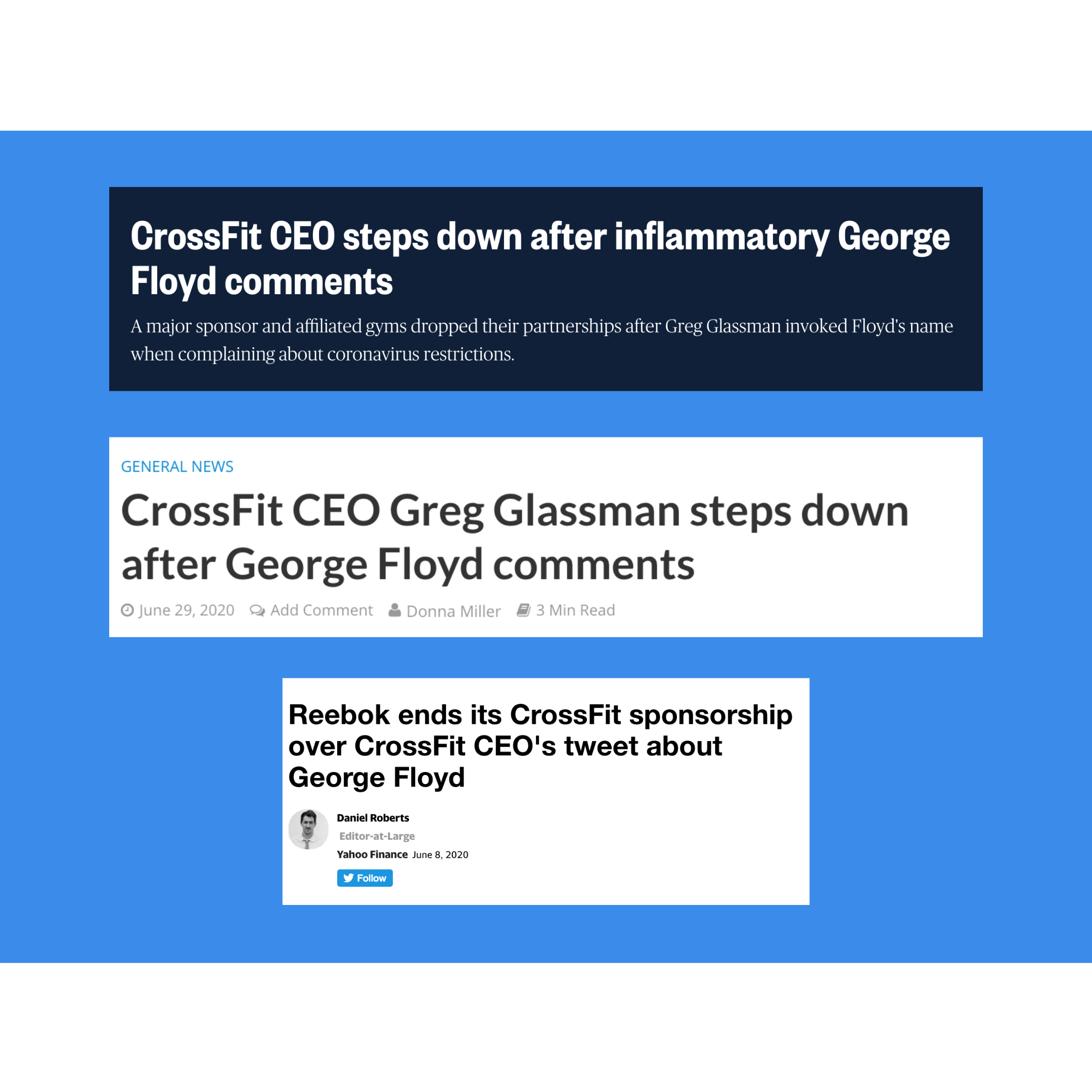Tapping into marketing in hard times as hard times is a total understatement, hard times is where we are living in right now. Social media is so rampant since COVID-19 that people are more active online and engaged.
A little bit of a low down to what #cancelled culture is all about.
#Cancelled Culture is a practice of withdrawing support.
Whether it’s a public figure or companies, and people who cancel brands or people who believe that whatever that said was objectionable or offensive. People have always been canceling brands that they don’t support & this has been happening for decades as a sign of activism for most consumers.
But today it is way more prevalent.
We see this happened in different industries & tying into our work as a marketing agency, one of the things that we had experienced was within the fitness industry. The Founder of CrossFit one day tweeted on his Twitter account.

It went so big that people who were registered under CrossFit and as an affiliation decided to disaffiliate themselves because they felt like it was their responsibility as a brand to take a stand and to not support someone who is deemed to be racist. Was he racist? That’s a whole other topic. But the fact that this person who represents the brand put out the tweet that represented a brand brought all this repercussion that claims as if CrossFit was racist.
 Now that CrossFit is deemed in the racist category, what happened was hundreds of gyms decided to take their name out within a day. The Founder had to resign from the position because as a business it was taking such a huge toll for disaffiliation.
Now that CrossFit is deemed in the racist category, what happened was hundreds of gyms decided to take their name out within a day. The Founder had to resign from the position because as a business it was taking such a huge toll for disaffiliation.
It wasn’t just the tweet, but also how Greg Glassman mitigated the situation as soon as people were pissed. He wasn’t sensitive about it and even made comebacks that drove more anger within the community. CrossFit was #cancelled.
You have the responsibility and the accountability on how you represent yourself in the digital channel.
It’s important for businesses to develop a brand communication strategy that is mindful of risks and repercussions. If you’re not thinking about the consequences of what you write or comment out there, you need to be very careful because this is just the era we’re living in right now. For brands who are in situations where things get sensitive and they are not showing sensitivity, they should back themselves up with a mitigation plan.
So what would’ve been a better way to communicate?
- Consider your brand values and brand identity in relation to your audience’s beliefs. (We created a guide to re-evaluate and strengthen your brand identity that you can download here).
- Evaluate your opinion in that situation and ask yourself, “how does this resonate on a personal level?”
- If you decide to speak up as a brand, be accountable for the outcome. Thread your communication style in a more neutral way to create inclusiveness.
- Do this exercise before you decide to make an announcement:
- Write down your opinion(s)
- Look at every standpoint and try to empathize by putting yourself in the shoes of your audience personas to understand all potential perspectives
- Choose your language and words wisely by writing & re-writing
#Cancelled culture wouldn’t be as extreme as right now if brands are more in tune with what people have to say and think because what is social media without listening? On top of that, it’s also about the courage of becoming transparent and having a difficult conversation instead of seeing it as a bad thing for brands and businesses. Here we are in the era of people becoming more outspoken and unafraid to express their opinions in their digital channels.
As a brand, you need to understand that you need to be more aware of the changes, and continue adapting to the world we live in. Relevance is the key to survival.
Watch the live session here.




